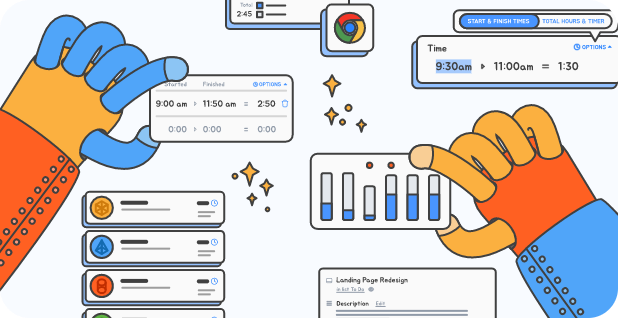Focusing Better At Night
Why Am I More Productive At Night?
It’s well past sundown, and most of the world seems to have gone quiet. The streets are emptier, the hum of daytime activity has died down, and yet you find your mind buzzing with ideas. Whether you identify as a night owl or simply notice a creative surge once darkness falls, this phenomenon is more common than you might think. Understanding the reasons behind increased nighttime productivity requires looking at factors like individual sleep patterns, circadian rhythm, lifestyle habits, and the psychological environment of nighttime hours. In doing so, it becomes easier to understand why some people can burn the midnight oil and produce their best work late in the evening while others struggle to keep their eyes open.

The night owl phenomenon
Human beings have long been categorized into different chronotypes—those who are naturally inclined to wake up early and feel alert in the morning, commonly known as early birds, and those who prefer staying awake late into the night, commonly referred to as night owls. If you’ve ever described yourself as a night owl, you’re certainly not alone. Many night owls recognize that their peak alertness and creativity often occur when others are winding down. While early birds may experience their peak cognitive function soon after sunrise, night owls often gain their mental edge during evening hours.
Individual differences in sleep pattern
At the heart of these differences lies your internal circadian rhythm, an internal 24-hour clock that influences not only when you sleep and wake, but also when you feel most energetic and focused. Although environmental cues such as daylight and social schedules can shape when we sleep, everyone’s sleep patterns are not identical. Some people naturally have a slightly longer 'sleep wake cycle,' causing them to feel tired later in the evening and wake up later in the morning. These individuals might find it more natural and comfortable to be productive at night rather than forcing themselves to function optimally at dawn.
The morning person vs. the night owl
Cultural norms often value early rising. The notion of the morning person who jumps out of bed at the crack of dawn and tackles the day’s tasks early is held in high esteem. By contrast, if you prefer late nights, you might face criticism for being lazy or lacking discipline. Yet these judgments often ignore the biological underpinnings at play. Not everyone can easily conform to a traditional 9-to-5 schedule, and trying to do so when your internal clock is aligned differently can lead to sleep deprivation and reduced productivity. Thus, discovering your true chronotype can help you embrace your natural tendencies rather than fighting against them.
Fewer distractions in the late hours
One reason you might be asking, “Why am I more productive at night?” is the diminished level of interference. During the day, life is full of phone calls, emails, meetings, and unexpected demands. At night, many of these disturbances vanish. This quiet, calm environment offers fewer distractions, allowing your mind to focus more deeply on the task at hand. Nighttime often serves as a mental retreat, where you have the freedom to explore creative ideas without the intrusion of background noise. This sense of solitude can foster better concentration, enabling complex problem-solving and encouraging more profound thought processes.
Psychological safety and creativity
Interestingly, the nighttime environment can also create a sense of psychological freedom. With less social pressure and less hustle and bustle, your brain may feel freer to wander into creative territories. Without the expectation to match typical working hours, you might experiment with new approaches, take creative risks, and let your ideas flow more naturally. The result is often enhanced nighttime productivity that isn’t possible during the structured hours of a typical workday.
Physiological factors and the stress hormone cortisol
Physiological factors also play a crucial role in determining why some individuals thrive at night. Hormones like the stress hormone, cortisol, fluctuate throughout the day. Cortisol helps regulate energy levels, alertness, and stress responses. For many, cortisol levels peak in the early morning, which helps early birds feel invigorated as soon as they wake. But for those with a delayed circadian phase—typical of night owls—this cortisol peak might occur later, fueling alertness and productivity at unconventional hours. Rather than struggling to perform when your cortisol is low, aligning your work schedule with your body’s natural hormone cycle may help you find that elusive flow state.
The role of REM sleep early morning hours
Quality rest is another essential factor. Proper sleep, especially restorative REM sleep early morning hours, is critical for memory consolidation, learning, and cognitive function. Ironically, being productive at night does not necessarily mean sacrificing quality sleep. If you structure your bedtime and wake-up time consistently—even if later than most—you can still achieve a healthy sleep routine that ensures you are well-rested. By respecting your body’s demands, you can replenish your energy stores and give yourself the foundation needed for consistent productivity, no matter when that productivity happens
Mental health considerations
Your inclination to be more productive at night may also intersect with your mental health. Anxiety, depression, or general stress can influence sleep and wake times. For some people, nighttime offers relief from the stressors that tend to pile up during the day. With minimal social obligations and a quieter environment, the mind can feel calmer, allowing projects to move forward more smoothly. This doesn’t mean working at night is a cure-all for mental health struggles, but it can provide a period of respite where you can engage in meaningful work without external pressures weighing you down.
The impact of sleep disorders
It’s important to distinguish being naturally productive at night from experiencing sleep disorders. Conditions like sleep apnea or chronic insomnia can disrupt your normal sleep cycle and force wakefulness at night that isn’t actually productive. If you find yourself struggling to get enough rest, feeling fatigued despite sleeping in, or experiencing difficulty concentrating even at your preferred hours, you may want to consult a medical professional. Identifying and treating underlying sleep disorders can help you reclaim a schedule that fits your natural rhythm, whether that means working late into the night or more traditional daytime hours.
Balancing work and life
Adhering to a standard daytime schedule can feel suffocating to someone who naturally thrives after sunset. If your job or responsibilities allow it, aligning your most mentally demanding tasks during your peak times—whenever they may occur—can make you more efficient. Being productive at night is not inherently harmful. The key is ensuring that you still make time for family, friends, and activities that support emotional well-being, exercise, and a healthy sleep routine. If your body wants you to sleep irregular hours, you can still make it work if you ensure consistency and proper self-care.
The importance of quality sleep
No matter when you work best, quality sleep is non-negotiable. When nighttime workers fail to structure their sleep properly, they can suffer from sleep deprivation, which has cascading effects on mood, cognitive function, and overall health. Aim to create a conducive sleeping environment that encourages deep, restorative rest. Block out light, reduce noise, and establish consistent sleep and wake times. Even if you fall asleep at 2 a.m. and wake at 10 a.m., as long as it’s consistent and you’re getting enough rest, you can maintain both productivity and health.
Circadian rhythm and flexibility
Your circadian rhythm is not set in stone. While genetic predispositions strongly influence whether you’re a morning lark or a night owl, environmental factors and personal habits can nudge your natural inclination one way or another. Exposure to bright light in the morning can shift your schedule earlier, while exposure to light late in the evening can push it later. If your life circumstances require you to work earlier, gradually adjusting your sleep hygiene and light exposure can reshape your sleep-wake cycle." Conversely, if your current obligations allow nighttime work, you might find greater satisfaction in sticking to your preferred hours.
Fewer external pressures at night
The late hours often feel like a bubble of personal space. You might find that tasks such as writing, coding, brainstorming, or even reading complex material come more naturally when the world outside your window quiets down. Phone calls are less frequent, and even social media traffic might dip, allowing you to focus. This can create a sense of control and freedom, enabling you to immerse yourself fully in what you’re doing. With fewer distractions, you may achieve a state of deep work that’s elusive during the day.
Cultural and environmental influences
In some cultures, staying up late and being active at night is seen as normal, while in others, it’s frowned upon. Urban environments might cater to late-night lifestyles with 24-hour cafés, coworking spaces, and gyms that remain open through the night. In these settings, being more productive at night does not stand out as unusual. By contrast, rural or small-town life might revolve strictly around daylight hours, placing pressure on individuals to adapt. Your environment and cultural background play subtle roles in whether you feel comfortable embracing your nighttime productivity.
Midnight oil and late-night work sessions
The phrase "midnight oil" often refers to working late into the night. Historically, people have had to literally burn oil lamps for illumination during dark hours. Today, electricity allows seamless transitions into nighttime work sessions. If you find that burning the "midnight oil" yields better work, it may be because your cognitive resources are peaking at this time. Instead of forcing yourself to be creative at 9 a.m., it’s more sustainable and efficient to accept when your brain naturally hits its stride.
Stress and overstimulation during the day
Modern life can be overstimulating. Traffic, crowded public spaces, continuous demands for attention, and constant digital interruptions can wear on your mental bandwidth. After sunset, there’s often a palpable drop in the intensity of external stimuli. Without immediate obligations, your mind might finally have the mental whitespace it needs to think deeply and work efficiently. Paradoxically, while day hours are supposed to be for productivity, they can drain your mental resources. By shifting tasks to quieter hours, you allow your brain to operate under more relaxed conditions, making it easier to engage in high-level cognitive work.
The role of technology in nighttime productivity
Modern technology affords unprecedented flexibility. With laptops, tablets, and smartphones, you can work from almost anywhere at any time. Online collaboration tools don’t necessarily require you to be available from 9-to-5. If you’re more productive at night, you can set your work hours to match your peak performance times. This digital revolution has made it easier for night owls to thrive, as long as they respect their sleep needs and avoid "sleep deprivation" by controlling their screen time and maintaining a healthy sleep routine.
Sleep disorders and diagnostice considerations
Not everyone who prefers to be productive at night does so by choice. Some may suffer from "sleep disorders" that disrupt their ability to fall asleep at conventional times. For instance, sleep apnea can fragment sleep, causing individuals to wake feeling unrefreshed even if they tried to sleep early. Over time, these conditions can shift a person’s sleeping habits toward later hours, as they struggle to get restful sleep at night. Identifying and treating such conditions is essential. Once properly managed, individuals might find that their productivity aligns with their natural preferences, whether that includes late nights or not.
Balancing nighttime work with a healthy lifestyle
If you choose to be productive at night, don’t neglect your overall well-being. It’s crucial to establish a healthy sleep routine that ensures you’re not just getting sleep, but getting quality sleep. You may sleep irregular hours, but you should still adhere to a schedule. This could mean going to bed at the same late hour every night and waking up consistently in the late morning or early afternoon. Make sure you still prioritize exercise, nutrition, and social interaction. Just because you work late does not mean you have to isolate yourself or become sedentary.
REM sleep early morning hours
For many people, their richest REM sleep occurs in the very early morning hours. REM sleep is when the brain processes emotions, consolidates memories, and fosters creativity. If you end your sleep too early, you might cut short this vital sleep stage. Aligning your schedule so that you can achieve these REM-rich hours can result in more creativity and problem-solving ability later in the evening when you sit down to work. Giving your brain the rest it needs may directly impact your capacity for nighttime creativity and focus.
Overcoming social stigma and scheduling challenges
One challenge facing those more productive at night is dealing with a world structured for morning people. Social obligations, work meetings, and errands often happen early in the day. Being productive at night can feel like swimming against the current, leading to missed opportunities or conflicts with others’ schedules. If possible, communicate your preferences to colleagues, friends, and family. Flexible working arrangements, staggered meeting times, or asynchronous communication tools can help bridge the gap. In the long run, being honest about your strengths and limitations may improve not only your productivity but also boost your mental health.
Sleep hygiene and environment
Making nighttime productivity sustainable involves good sleep hygiene. Even if you turn in at 3 a.m., ensure your sleeping environment is quiet, dark, and comfortable. Avoid caffeine in the late evening if it interferes with rest. Make sure your sleep duration meets your individual needs. Remember, the goal is not just to be awake at night, but to remain energized and focused. Neglecting rest in pursuit of productivity is a recipe for burnout, mood disturbances, and declining work quality.
Listening to your body
Much of the discussion about why you’re more productive at night boils down to listening to your body’s cues. If your energy, alertness, and creativity peak at midnight, embrace it. Trying to force yourself into a mold that doesn’t fit will likely lead to frustration and diminished performance. Conversely, if you’re an early bird type who tries to emulate night owls, you might find yourself suffering from sleep deprivation and poor output. Paying attention to when you naturally feel most alive, focused, and engaged can help you design a lifestyle that supports your innate rhythm.
Assessing trade-offs
While working at night can offer fewer distractions, there are trade-offs. The world runs on a schedule that often favors morning activities. You might have to juggle appointments, family commitments, or social events that don’t align with your late-night routine. Finding a balance might involve compromising on some activities or scheduling them during transitional hours. The key is understanding that no schedule is perfect, and every choice comes with pros and cons. Being aware of these trade-offs can help you make conscious decisions about how to organize your life.
The bottom line
Ultimately, the reason you are more productive at night might come down to your intrinsic biology, personal preference, environmental conditions, and lifestyle. Whether it’s because your circadian rhythm is shifted later, you find fewer distractions, or your stress hormone cortisol aligns better with late hours, embracing this aspect of yourself can lead to greater overall satisfaction and efficiency. Just remember that being a night owl doesn’t mean you have to suffer sleep deprivation or neglect quality sleep. With mindful adjustments and acceptance, you can strike a balance that allows you to thrive in your chosen window of productivity.















